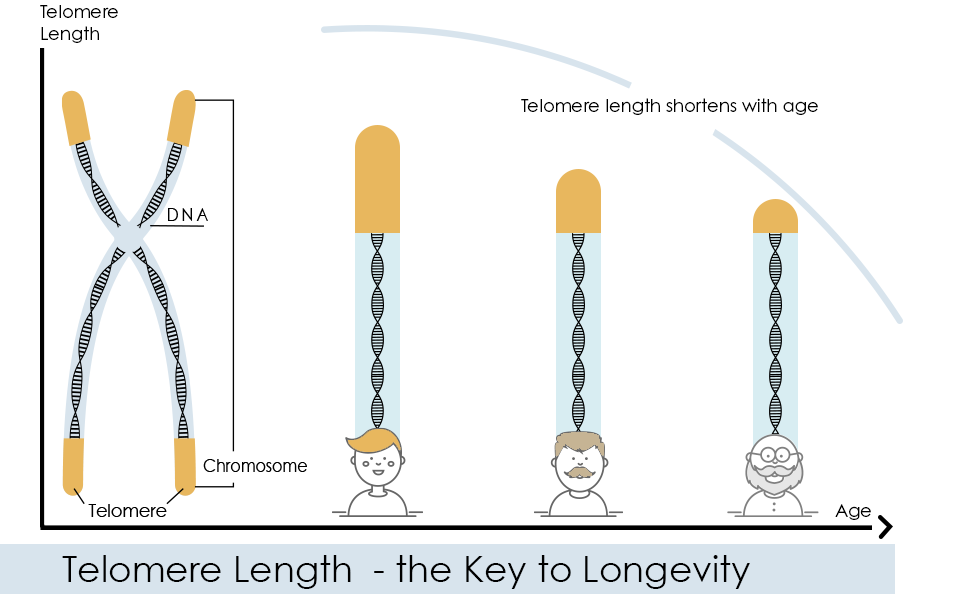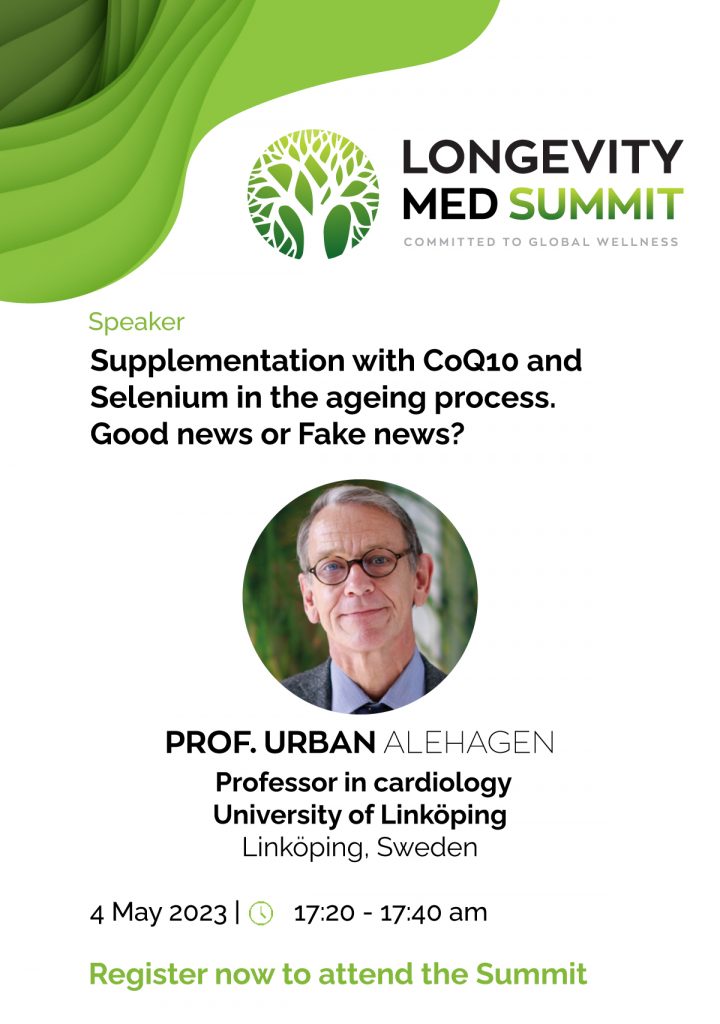

It is possible to keep the body’s cells alive longer by giving people a combination of the two dietary supplements, selenium and coenzyme Q10 shows a new Scandinavian study using preparations from Pharma Nord. This may help seniors stay healthy to a ripe old age.
All cells in the body have an expiry date but it may be possible to extend it. The study, which is published in the journal Nutrients, looked at the length of telomeres. Telomere-length is a well-known and recognised method of assessing the remaining lifespan of a cell.
Longer Telomeres with Selenium and Q10
The group of participants that received the two active supplements, SelenoPrecise and Bio-Quinone Q10, had significantly longer telomeres than the participants in the group that got placebo. In other words, taking the combination of the two substances extended the expiry date of the cells and that could have a significant impact on the speed of aging.
Telomeres protecting DNA
Telomeres are the end-caps of our DNA strings and just like the plastic snips at the end shoelaces they prevent the DNA from unravelling. Telomeres become slightly shorter each time a cell divides. With time, they become so short the cell is no longer able to divide successfully; it becomes senescent leading to genetic errors or cell death eventually causing health problems.
What the study shows is that the mineral selenium and the vitamin-like compound coenzyme Q10 are able to protect the telomeres by slowing down the shortening process so the cells last longer.

Oxidative stress and inflammation
“We humans are exposed to accelerating aging where increased oxidative stress and inflammation speed up the process, especially if we lack selenium and CoQ10. However, if people who have low levels of these two compounds take a supplement, it can slow down their aging,” says lead researcher, Professor Urban Alehagen, a cardiologist from the University Hospital of Linköping in Sweden.
The recent study was made by analyzing blood samples that the team of scientists took regularly from over 443 study participants over a period of five years as part of the main study, KiSel-10, which was published in 2013 in International Journal of Cardiology. Here, they could see that the participants that took selenium and coenzyme Q10 had a 54 percent lower cardiovascular mortality rate compared with the placebo group.
Normally, cardiovascular disease is the leading cause of death in old age. Their findings made them curious to find an explanation so they started a systematic analysis of the huge number of blood samples that were stored in special freezers.
Counteract biological decay
Since the publication of the main study in 2013, more than 20 follow-up studies have been published. Here, the scientists have been able to see by measuring various biomarkers that selenium and coenzyme Q10 appear to counteract some of the biological change that is normally seen in connection with the aging process.
“So far, we have observed that the two compounds have a positive impact on fibrosis, a phenomenon that is especially pronounced in connection with cardiovascular aging. We have also looked at other markers and can see that there is a relation between selenium intake and biological age,” Professor Alehagen explains.
In the most recent study, which is the 21st sub-study, they have focused on telomere length. And once again, the team of scientists has demonstrated that the combination of selenium and coenzyme Q10 seems to help seniors stay healthy longer.

Sign up to receive the Longevity Med Summit
updates and more

Youtube